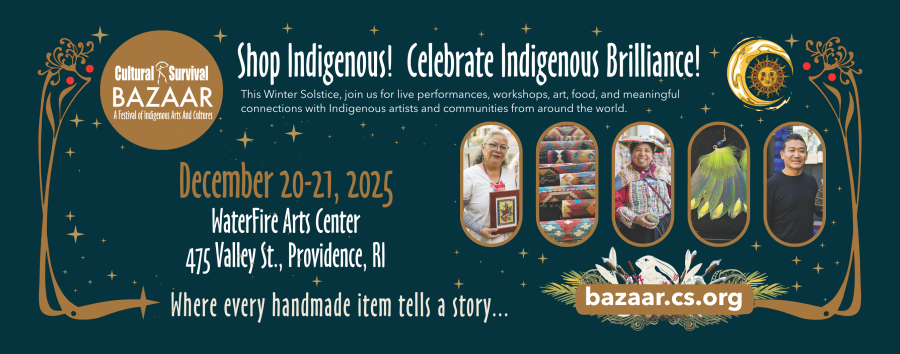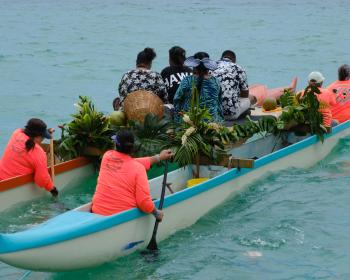The title Cultural Survival: 40 Years of Advocacy from Brazil 1972 to Brazil 2012 symbolically marks four decades of Cultural Survival’s advocacy partnering with Indigenous Peoples in defending their land, languages, and cultures. Inspired by David and Pia Maybury-Lewis’ early work in Brazil with the Xavante people, our work has now come full circle with the United Nations Conference on Sustainable Development (Rio+20) in Brazil.
Cultural Survival was founded to “bear witness to a genocidal threat, to make the world aware of this process of destruction, and to try to stop it.” Today, we align our mission with the UN Declaration on the Rights of Indigenous Peoples and seek to support the implementation of the Declaration through our programmatic efforts. Our current work is reflected in the Guatemala Community Radio Program which strengthens Indigenous community radio programming and supports activism demanding legislation to legalize community radio. Community radio serves as an important mechanism for asserting Indigenous rights, as Indigenous Peoples in Guatemala continue to fight against forced relocation, militarized communities, abuses of transnational companies, discrimination, and marginalization.
Our Global Response Program campaigns with the Samburu and the Kuy people bring international attention to the human rights abuses and lands rights violations in Kenya and Cambodia. US observers attending recent legal proceedings in the Samburu case report ongoing violence against rural Samburu villages. We continue to support the Samburu in their resilience, courage, and actions to resist relocation and fight for their land. The Kuy people also struggle against land loss and relocation as their traditional lands are being remapped as the Cambodian government concedes to a transnational corporation. Neal Keating in his article states, “such encounters are devoid of anything resembling free, prior and informed consent, are commonplace throughout Cambodia.”
Cultural Survival advocates strongly for the rights of free, prior and informed consent to be honored and exercised. Forty years after Cultural Survival began its work in Brazil, we celebrate with the Xavante who after decades of struggle are gaining the recognition and return of their land by the Brazilian government. As Indigenous Peoples, we return to Brazil to attend the Rio+20 conference with new voices. Our voices proclaim our struggles and environmental and climate concerns through the discourse and framework of “rights” represented in the UN Declaration on the Rights of Indigenous Peoples. Our voices articulate the same issues that were occurring 40 and 20 years ago of environmental destruction, ecosystem loss, land loss, sacred sites loss, cultural and language loss in the face of development and globalization. We hope that the discourse of “green economies and sustainable development” truly recognizes Indigenous voices and participation in shaping state policies that assure Indigenous Peoples’ survival and self-determination.
Cultural Survival’s work is not done. Looking forward, our vision is to live in a world in which Indigenous Peoples speak their languages, live on their land, control their resources, maintain thriving cultures, and participate in broader society on equal footing with other peoples. We count on your generous support to realize that vision.
Suzanne Benally (Navajo and Santa Clara Tewa)


